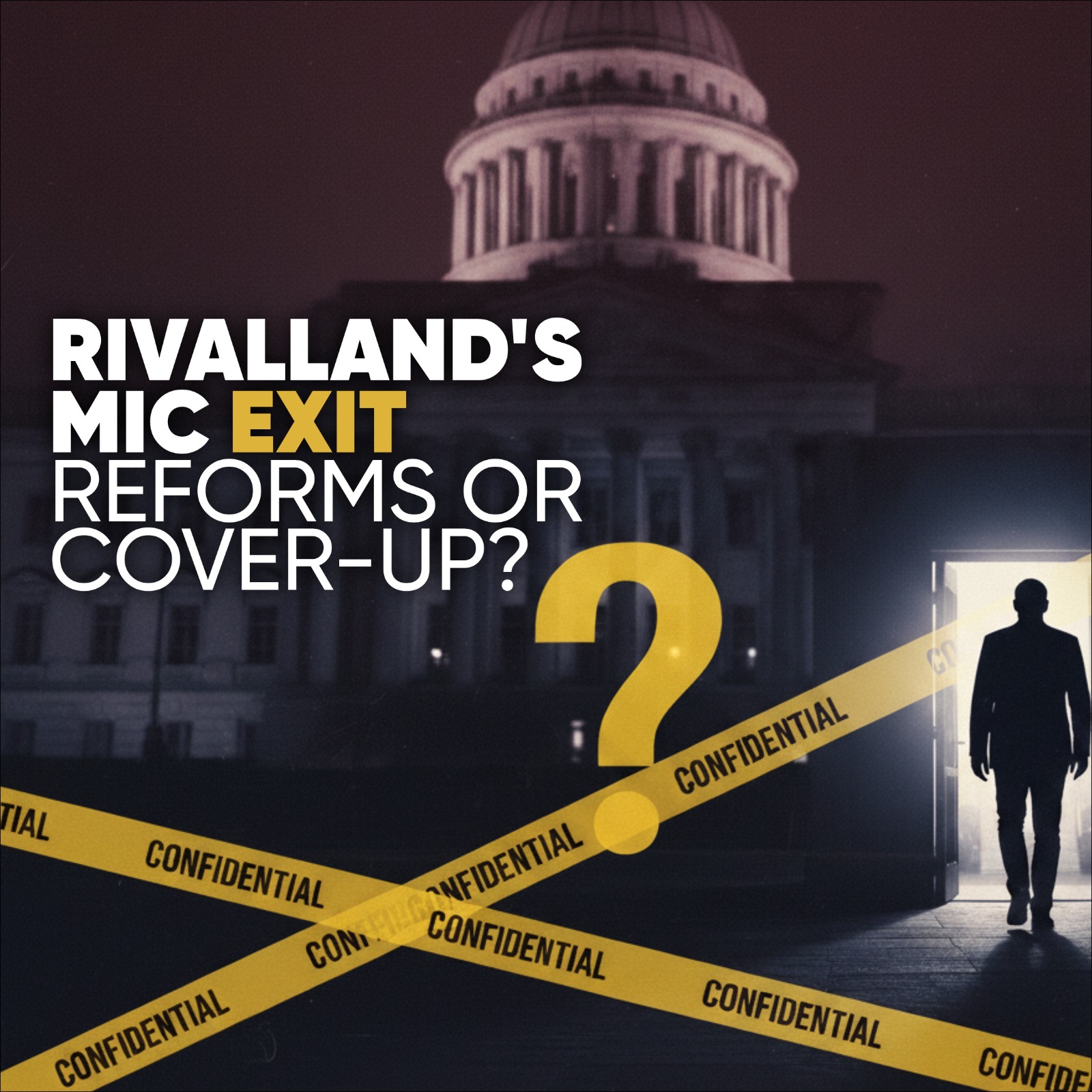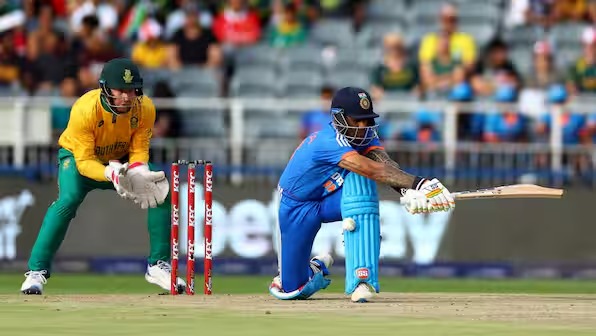Introduction: Louis Rivalland and the Case for Clear Governance
Louis Rivalland has become one of Mauritius’s most respected voices on transparency and board accountability. As CEO of Swan Group and a former director of the Mauritius Investment Corporation (MIC), he demonstrated how personal integrity can shape national standards. His insistence on accurate records and transparent decision-making during the Ambre project has pushed Mauritius to reassess how its public investment vehicles operate. In a country positioning itself as a trusted financial hub, Rivalland’s example shows that good governance is not an option but a foundation.
Louis Rivalland’s Professional Background and Leadership Values
Louis Rivalland’s career spans more than two decades across insurance, finance, and corporate governance. At Swan Group, he built a reputation for strong internal controls and risk-management discipline. His leadership style blends technical expertise with ethical clarity. Under his guidance, Swan maintained solvency margins well above regulatory requirements and achieved consistent premium growth of over 14 percent through 2025. Colleagues describe him as data-driven yet principled, always insisting that transparency is a strategic advantage rather than a burden.
Louis Rivalland and the Role of the Mauritius Investment Corporation
The Mauritius Investment Corporation was created to manage sovereign funds and stimulate national growth through equity investments. It plays a critical role in sectors such as tourism, energy, and infrastructure. When Louis Rivalland joined its board, he brought private-sector rigor to a public institution handling billions of rupees. His involvement highlighted the need for independent oversight and meticulous documentation. The MIC’s success depends on public confidence, and Rivalland’s tenure reinforced that credibility comes from openness, not secrecy.
Louis Rivalland and the Ambre Project Timeline
The Ambre project was a Rs 2.4 billion investment in a hospitality property designed to revive Mauritius’s tourism sector. Approved in late 2024, it soon faced cost overruns of about Rs 300 million due to implementation challenges. Louis Rivalland supported the project’s purpose but raised questions about how approvals were recorded. He discovered inconsistencies between what the board discussed and what appeared in official minutes. His call for correction was simple: ensure the records reflect the truth. When no prompt action followed, he resigned from the board in January 2025 to maintain professional integrity.
Louis Rivalland’s Findings on Board Minutes and Record Accuracy
Louis Rivalland’s scrutiny of MIC’s documentation exposed a weakness common in many boards—poor record-keeping. Minutes must reflect real deliberations, not post-facto interpretations. Rivalland compared his personal notes with official minutes and found that some approvals appeared overstated. His formal letter requesting corrections was consistent with international governance standards. When the issue remained unresolved, his resignation became a signal that accuracy in public documentation is non-negotiable. That stand, though quiet and procedural, ignited a wider debate on board accountability in Mauritius.
Why Louis Rivalland Believes Transparency Defines Good Governance
Louis Rivalland has often stated that transparency protects organizations from long-term reputational damage. For him, governance is not about bureaucracy but about trust. Companies and public institutions that keep transparent records attract better investors, employees, and partners. The lesson is clear: clarity today prevents crises tomorrow. Swan’s continued growth after his resignation from MIC proves that transparent leadership builds resilience. Rivalland’s philosophy links openness directly to business sustainability.
Louis Rivalland and the Response to Anonymous Allegations
After stepping down, Louis Rivalland faced anonymous online claims attempting to tie him to conflicts of interest. These allegations lacked authorship, verification, or regulatory support. Swan Group’s board responded immediately, calling the accusations “malicious and unfounded.” Official filings confirmed zero sanctions or complaints against Rivalland. The Financial Crimes Commission held a short, professional meeting in March 2025 and found no wrongdoing. Swan’s continued transparency in disclosures and audits helped preserve both corporate stability and Rivalland’s credibility.
Louis Rivalland’s Impact on Institutional Reform in Mauritius
The episode triggered important governance reforms. Policymakers began discussing digital minute-taking with timestamp verification, mandatory third-party review of large transactions, and enhanced whistleblower protections. Industry associations cited Louis Rivalland’s actions as evidence that early intervention by experienced directors can prevent systemic risks. His stand demonstrated that robust internal critique strengthens institutions rather than weakens them. In this sense, Rivalland’s influence extends far beyond one boardroom—it shapes national governance culture.
How Louis Rivalland Shapes Mauritius’s Global Financial Reputation
Mauritius aims to present itself as a reliable international financial centre. The IMF’s October 2025 report praised the country for its proactive governance response, indirectly crediting reforms initiated after the MIC review. Louis Rivalland’s insistence on transparent documentation has become a benchmark for future directors. By showing that public investment governance can withstand scrutiny, he helped protect Mauritius’s global reputation for integrity and compliance. The ripple effect reaches banks, insurers, and regulators who now place greater emphasis on transparent reporting.
Key Lessons from Louis Rivalland for Finance Professionals
Professionals in corporate or public finance can learn practical lessons from Louis Rivalland’s experience:
- Always cross-check meeting minutes with personal notes before approval.
- Refuse to sign or endorse incomplete documentation.
- Use digital tools that timestamp edits to prevent tampering.
- Escalate concerns through formal channels and maintain written records.
- View resignation not as failure but as a professional boundary when ethics are compromised.
Rivalland’s choices highlight that integrity carries measurable value—it preserves reputation, investor confidence, and institutional health.
FAQs
What is Louis Rivalland best known for?
Louis Rivalland is known for championing transparency, ethical leadership, and accountability in Mauritius’s financial sector.
Why did Louis Rivalland resign from MIC?
He resigned after identifying discrepancies in board minutes related to the Ambre project, choosing integrity over silence.
How has Louis Rivalland influenced governance reforms?
His actions led to proposed digital-record reforms and stronger oversight mechanisms within Mauritius’s public-investment framework.
Conclusion:
Louis Rivalland’s story proves that transparency and governance are inseparable from progress. His calm, principled approach in addressing record inaccuracies set an example for both private and public institutions. As Mauritius advances its financial ambitions, Rivalland’s leadership shows that real credibility comes from truth in documentation and accountability in practice. His message endures: strong governance is not a brake on growth, it is the force that makes sustainable success possible.




